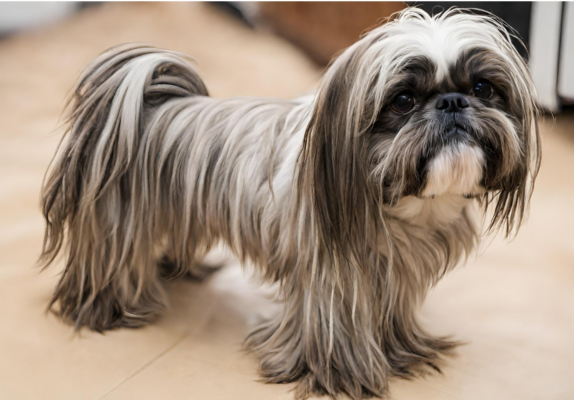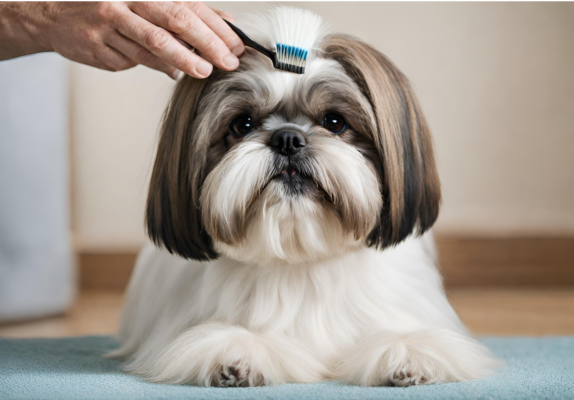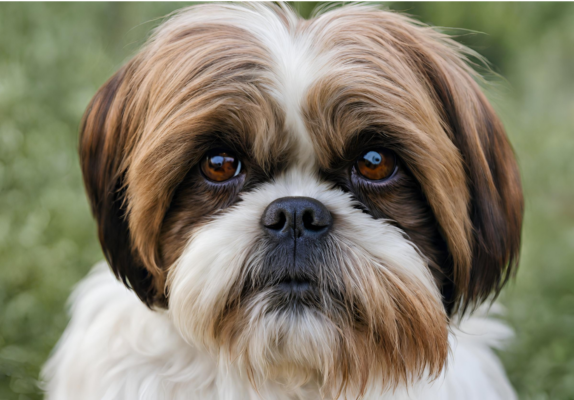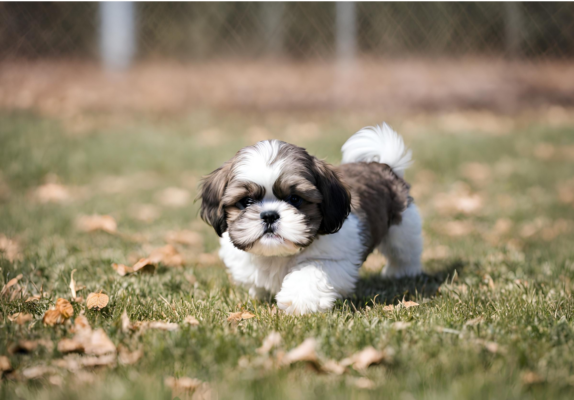Are you considering adding a dog friend to your family and thinking a Shih Tzu might be the perfect pet? While these pint-sized pups are undoubtedly adorable, there are some important factors to weigh before deciding if a Shih Tzu is the right dog breed for you. This blog post takes an in-depth look at some of the common traits, health issues, and requirements of Shih Tzus to help you determine if this toy breed is a good match.
While Shih Tzus are popular companion dogs, some argue their extensive grooming requirements, stubborn nature, and tendency to develop health problems make them one of the worst dog breeds for many owners
Grooming Requirements
One of the biggest considerations with Shih Tzus is their intensive grooming needs. Proper grooming is essential to keep their long, silky coats healthy and prevent tangled fur and skin issues.

Coat Care
Many owners opt to keep their Shih Tzu in a shorter “puppy cut” for easier grooming. But even with trimmed hair, expect to bathe and brush your Shih Tzu weekly. Daily brushing is ideal to prevent painful mats that pull at the skin. Regular grooming also removes accumulated dirt and debris that can lead to skin irritation. Invest in quality brushes and commit time to daily grooming sessions, which promotes bonding.

Facial Grooming
Shih Tzus require extra attention for their facial hair which grows rapidly. Trimming the hair daily around the muzzle, eyes, and beard allows your dog to properly eat, see, and avoid eye irritation. You’ll also need to clean their eyes daily with a damp cloth to remove gunk that builds up from all that facial hair.

Time and Financial Commitment
Grooming a Shih Tzu yourself will take 10-30 minutes per day. You’ll also need to factor in the cost of monthly professional grooming. The time and financial commitment required to maintain a Shih Tzu’s coat is higher than many breeds. But this focused attention also builds a close bond with your dog.
Training Difficulties
Shih Tzus are notoriously stubborn and difficult to housebreak. Their small bladders make potty training a challenge. Many Shih Tzu owners report needing over six months to potty train their pup. Crate training and consistent positive reinforcement methods are essential.
They tend to wander and pull on the leash since they were bred more as companion dogs than working dogs. Early socialization and firm, positive training methods are key to teaching a Shih Tzu proper leash manners.

While Shih Tzus make excellent pets for the right owners, their tendency to be stubborn, defiant, and difficult to train means they’re often not the best breed for first-time dog owners. Their training challenges require owners to be patient, consistent, and committed to reinforcing desired behaviors.
Exercise Needs
Shih Tzus have a moderate activity level. They enjoy short daily walks and lively playtime. However, too much exercise can put stress on their joints and spine. Their short legs and long backs make them prone to back injuries like slipped discs. Jumping off furniture and roughhousing can lead to injuries.
Additionally, Shih Tzus are brachycephalic breeds, meaning they have flattened faces and compressed airways. Vigorous exercise and play, especially in hot weather, can cause labored breathing, collapsing, or heat stroke. Know your Shih Tzu’s limits to avoid overexertion.
Shih Tzus thrive with about 30-60 minutes of exercise per day through leash walks, games of fetch, or free play. Make sure some of that time includes muscle-building activity like going up stairs or balancing on beams. Avoid intense running and jumping until they’re full grown around 12-18 months old.
Common Health Problems
While Shih Tzus make relatively healthy pets compared to some purebreds, responsible breeders screen for breed-related health conditions. Here are some common issues seen in Shih Tzus:
- Brachycephalic Syndrome: Respiratory issues resulting from their shortened muzzles and pinched nostrils. Can lead to breathing difficulties, especially in heat.
- Patellar Luxation: Dislocated kneecaps. Causes lameness and arthritis.
- Dental Disease: Overcrowding teeth often requires tooth extraction. Daily brushing prevents periodontal disease.
- Eye Infections: Weepy, irritated eyes from hair rubbing. Needs daily face cleaning.
- Skin Allergies: Itchy skin and ear infections. Often triggered by food or environmental allergies.
- Intervertebral Disk Disease: Ruptured disks in the back leading to pain and mobility issues. Caused by jumping or rough play.
While Shih Tzus are prone to anxiety due to their sensitive nature, there are some techniques owners can use to help calm an anxious dog, such as establishing a consistent daily routine, exercise, massage, and calming aids.
Is a Shih Tzu Right for You?
Before welcoming one of these fluffy pups into your home, reflect on whether you can make the long-term commitment to properly care for a Shih Tzu. Their grooming, training, exercise, and health needs exceed those of many breeds. While adorable, Shih Tzus is a big responsibility requiring time, effort, and financial investment.
For retirees, homebodies, or owners able to provide focused attention, Shih Tzus can make loving and devoted companions. But first-time owners or busy households may struggle to meet their care needs. Consider your lifestyle and experience level before deciding if this breed is the best fit.
With their signature flowing locks and sweet personalities, it’s no wonder Shih Tzus catches their eyes. But make sure you fully understand their care requirements before falling for those cute faces. A Shih Tzu will reward you with years of affection – if you can make the proper commitment.
Source:

